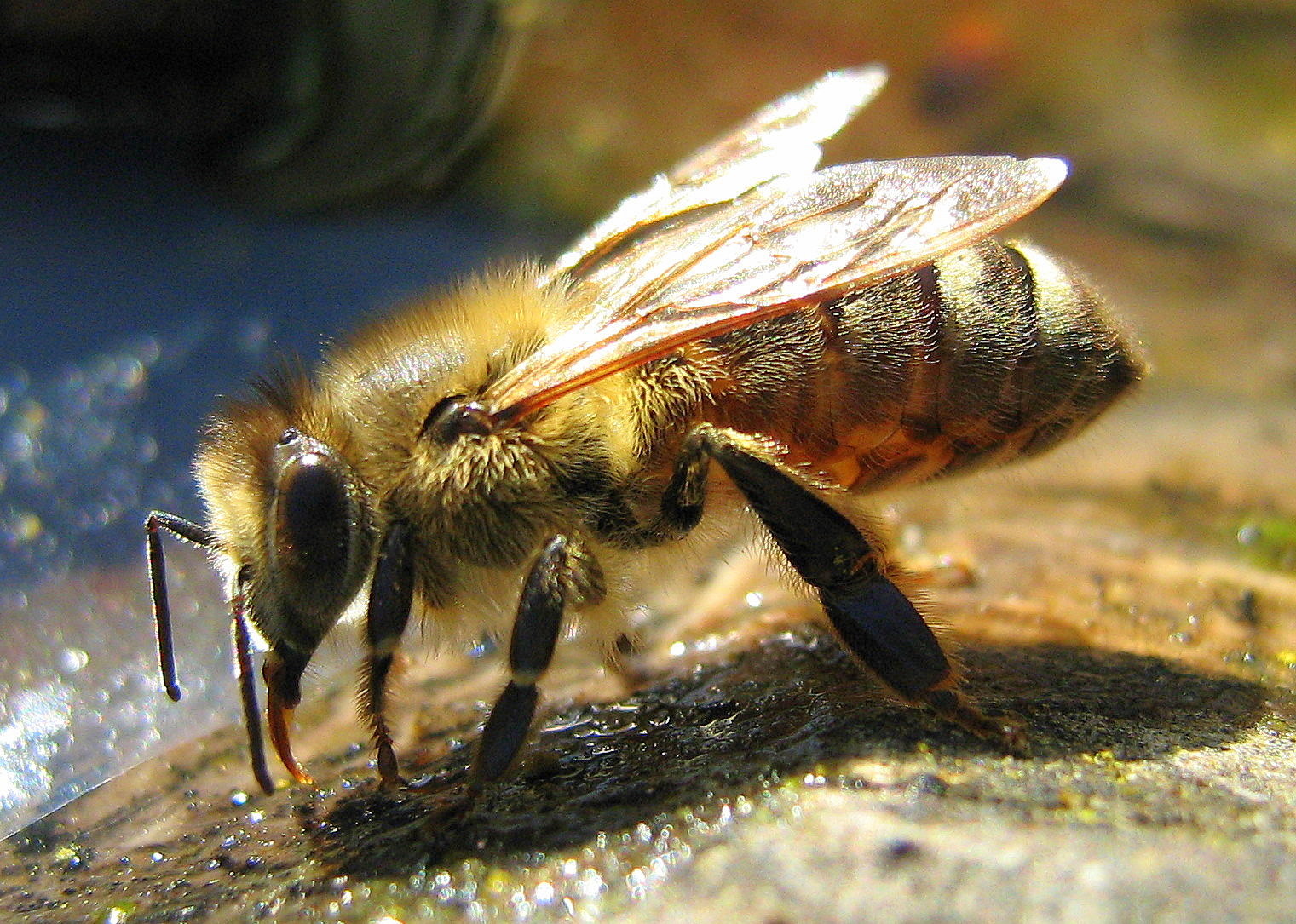Apiology on:
[Wikipedia]
[Google]
[Amazon]
 Melittology (from
Melittology (from
Apidologie
' *
American Bee Journal
' * ''Journal of Apicultural Research'' * ''Journal of Melittology''
 Melittology (from
Melittology (from Greek
Greek may refer to:
Anything of, from, or related to Greece, a country in Southern Europe:
*Greeks, an ethnic group
*Greek language, a branch of the Indo-European language family
**Proto-Greek language, the assumed last common ancestor of all kno ...
, ''melitta'', "bee"; and ''-logia
''-logy'' is a suffix in the English language, used with words originally adapted from Ancient Greek ending in ('). The earliest English examples were anglicizations of the French '' -logie'', which was in turn inherited from the Latin '' -lo ...
'') is a branch of entomology
Entomology (from Ancient Greek ἔντομον (''éntomon''), meaning "insect", and -logy from λόγος (''lógos''), meaning "study") is the branch of zoology that focuses on insects. Those who study entomology are known as entomologists. In ...
concerning the scientific study of bees. It can also be called apiology or apicology. Melittology covers the species found in the clade
In biology, a clade (), also known as a Monophyly, monophyletic group or natural group, is a group of organisms that is composed of a common ancestor and all of its descendants. Clades are the fundamental unit of cladistics, a modern approach t ...
Anthophila
''Anthophila'', from Ancient Greek ἄνθος (''ánthos''), meaning "flower", and φίλος (''phílos''), meaning "loving", is a genus of moths in the family Choreutidae.
Species
*''Anthophila abhasica'' Danilevsky, 1969
*''Anthophila alp ...
within the superfamily Apoidea
The superfamily Apoidea is a major group (of over 30 000 species) within the Hymenoptera, which includes two traditionally recognized lineages, the "sphecoid" wasps, and the bees. Molecular phylogeny demonstrates that the bees arose from ...
, comprising more than 20,000 species, including bumblebee
A bumblebee (or bumble bee, bumble-bee, or humble-bee) is any of over 250 species in the genus ''Bombus'', part of Apidae, one of the bee families. This genus is the only Extant taxon, extant group in the tribe Bombini, though a few extinct r ...
s and honey bee
A honey bee (also spelled honeybee) is a eusocial flying insect within the genus ''Apis'' of the bee clade, all native to mainland Afro-Eurasia. After bees spread naturally throughout Africa and Eurasia, humans became responsible for the ...
s.
Subdivisions
* Apiology – (fromLatin
Latin ( or ) is a classical language belonging to the Italic languages, Italic branch of the Indo-European languages. Latin was originally spoken by the Latins (Italic tribe), Latins in Latium (now known as Lazio), the lower Tiber area aroun ...
, "bee"; and Ancient Greek
Ancient Greek (, ; ) includes the forms of the Greek language used in ancient Greece and the classical antiquity, ancient world from around 1500 BC to 300 BC. It is often roughly divided into the following periods: Mycenaean Greek (), Greek ...
, ''-logia
''-logy'' is a suffix in the English language, used with words originally adapted from Ancient Greek ending in ('). The earliest English examples were anglicizations of the French '' -logie'', which was in turn inherited from the Latin '' -lo ...
'') is the scientific study of honey bee
A honey bee (also spelled honeybee) is a eusocial flying insect within the genus ''Apis'' of the bee clade, all native to mainland Afro-Eurasia. After bees spread naturally throughout Africa and Eurasia, humans became responsible for the ...
s. Honey bees are often chosen as a study group to answer questions on the evolution of social systems.
:* Apidology is a variant spelling of ''apiology'' used outside of the Western Hemisphere
The Western Hemisphere is the half of the planet Earth that lies west of the Prime Meridian (which crosses Greenwich, London, United Kingdom) and east of the 180th meridian.- The other half is called the Eastern Hemisphere. Geopolitically, ...
, primarily in Europe
Europe is a continent located entirely in the Northern Hemisphere and mostly in the Eastern Hemisphere. It is bordered by the Arctic Ocean to the north, the Atlantic Ocean to the west, the Mediterranean Sea to the south, and Asia to the east ...
; it is sometimes used interchangeably with ''melittology''.
Melittological societies
Melittologists and apiologists are served by a number of scientific societies, both national and international in scope. Their main role is to encourage the study of bees and apicultural research. * '' International Bee Research Association'' * '' National Bee Association of New Zealand'' * '' British Beekeepers Association'' * ''German Beekeepers Association
The German Beekeepers Association (German language, German: ''Deutscher Imkerbund'', ''DIB'') is the umbrella organization of German beekeepers based in Wachtberg, Germany. It was founded in 1907 for the purpose of promoting beekeeping and mark ...
''
* '' Federation of Irish Beekeepers' Associations''
Melittological journals
*Apidologie
' *
American Bee Journal
' * ''Journal of Apicultural Research'' * ''Journal of Melittology''
See also
*Beekeeping
Beekeeping (or apiculture, from ) is the maintenance of bee colonies, commonly in artificial beehives. Honey bees in the genus '' Apis'' are the most commonly kept species but other honey producing bees such as '' Melipona'' stingless bees are ...
* I Have a Bee, worldwide organization for hobby beekeepers
* Vespology
* Melissopalynology
Melittologists
* Eva Crane (12 June 1912 – 6 September 2007), founded the Bee Research Association which later became the International Bee Research Association. *Thomas William Cowan
Thomas William Cowan (1840–1926) was a co-founder and president of the British Beekeepers' Association.
Biography
Cowan was born in 1840 in Saint Petersburg, Russia, and died in 1926 in Clevedon
Clevedon (, ) is a seaside town and civil ...
(1840–1926), former cofounder and president of the British Beekeepers' Association. Designed the cylindrical honey extractor
* Jeffery Pettis, head of Apimondia
Apimondia or International Federation of Beekeepers' Associations promotes scientific, ecological, social and economic apicultural development in all countries and the cooperation of beekeepers` associations, scientific bodies and of individuals ...
References
{{DEFAULTSORT:Melittology Bees Subfields of entomology * Sociobiology